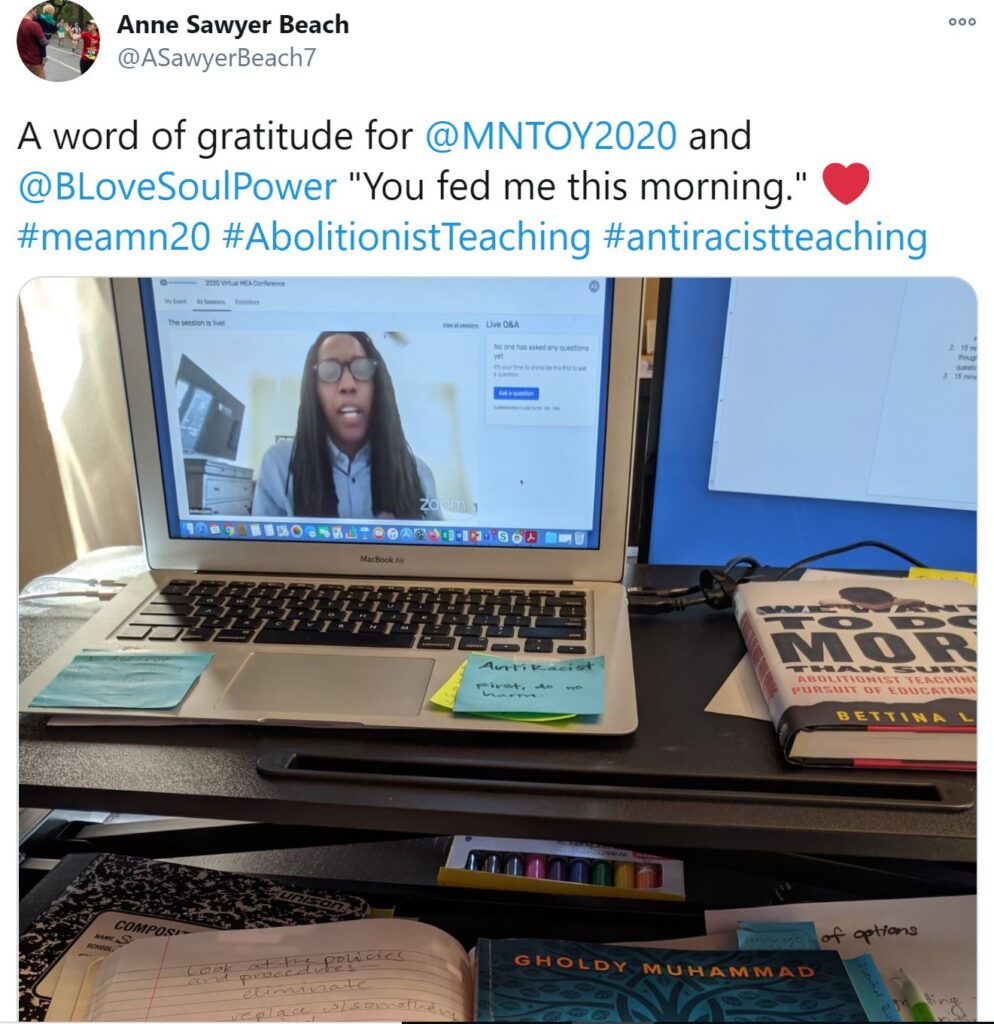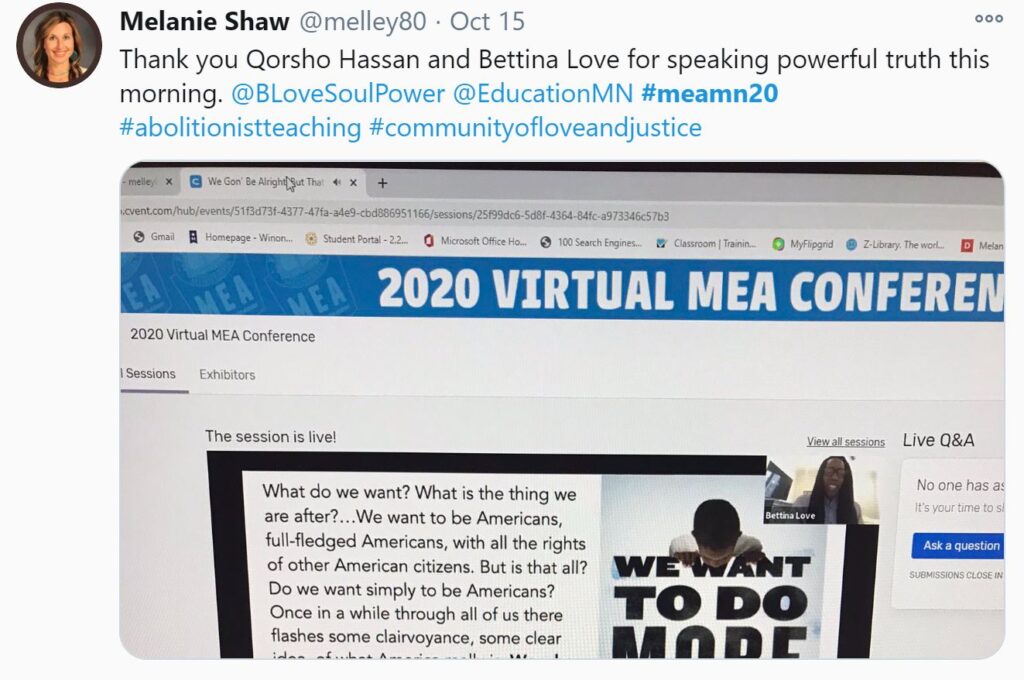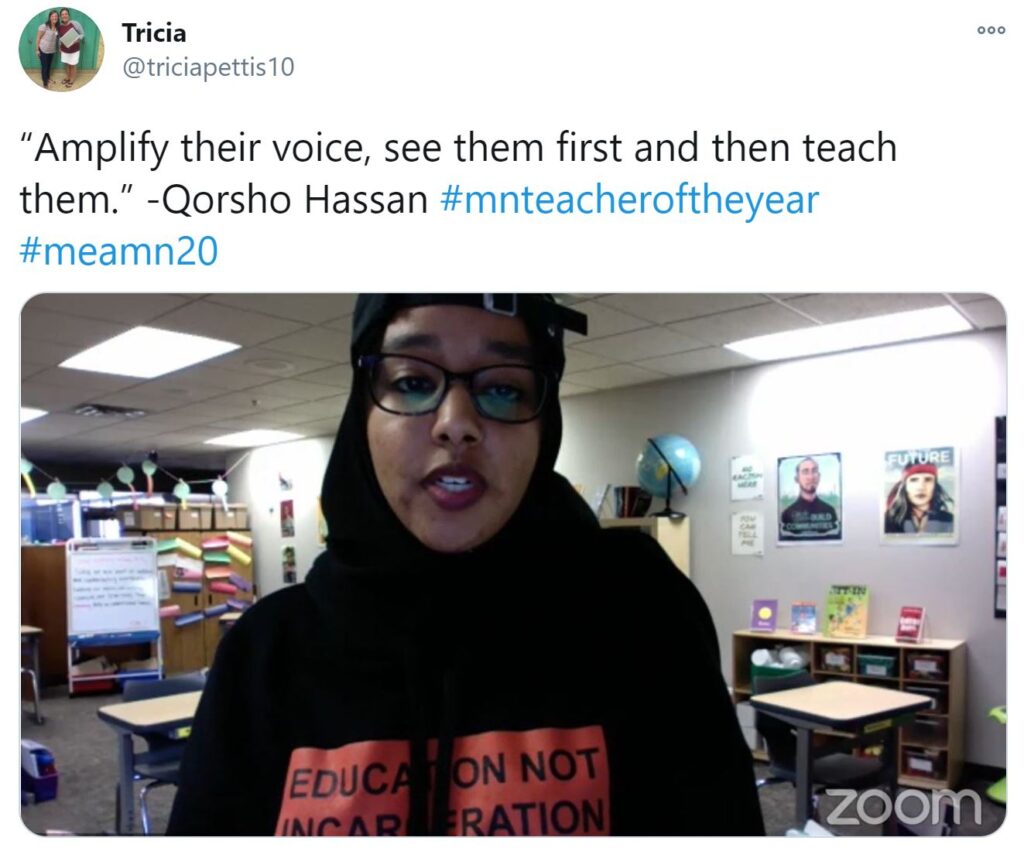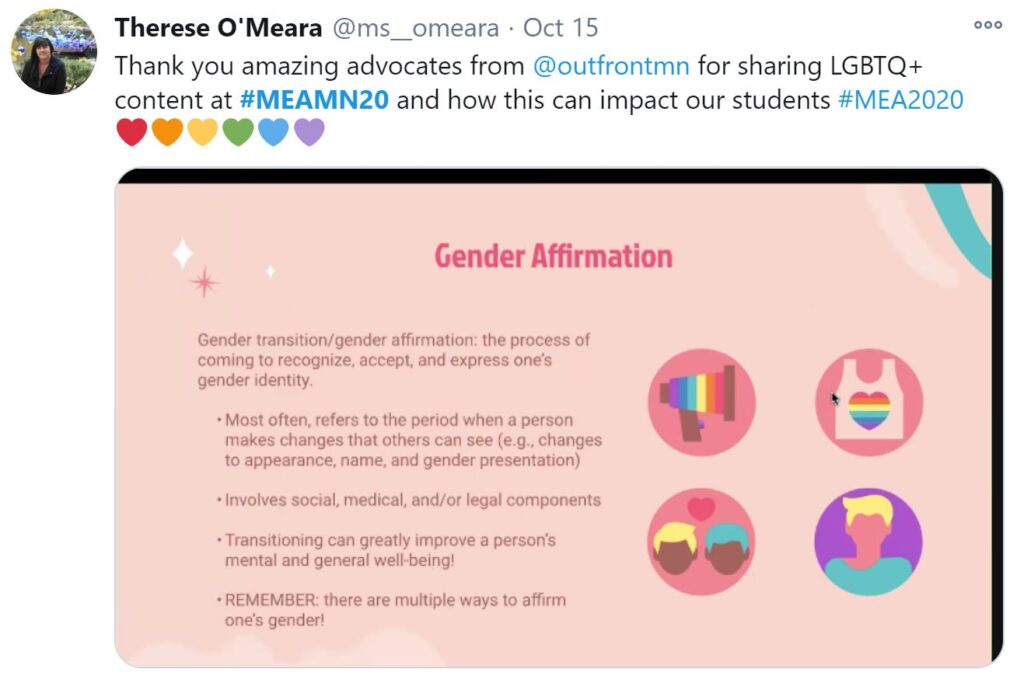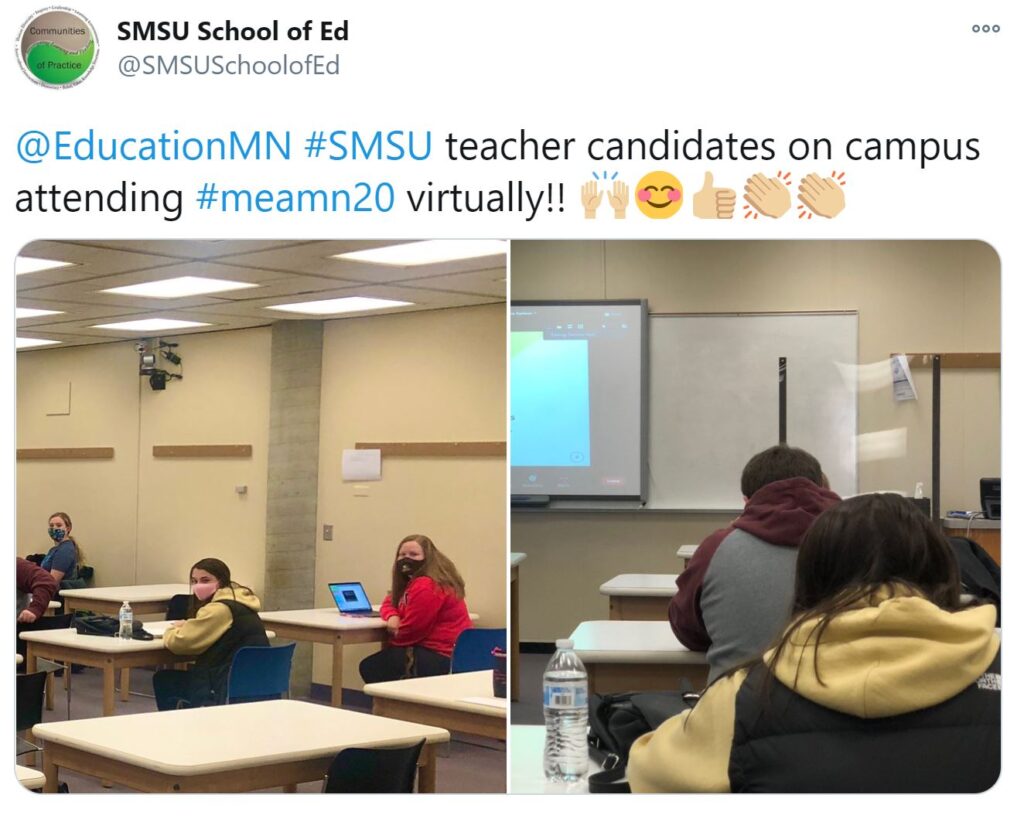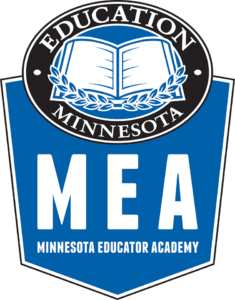
The 2020 MEA conference was held virtually Oct. 15 with nearly 30 live sessions, and many online asynchronous classes available for educators.
More than 1,100 educators logged on to sessions throughout the day. The conference was once again open to Education Minnesota members and aspiring educators only.
The conference began with keynote speeches from 2020 Minnesota Teacher of the Year Qorsho Hassan and professor and award-winning author Dr. Bettina Love.
Hassan, a fourth-grade teacher in the Rosemount-Apple Valley-Eagan district, talked about the need for educators to demand racially just, fully funded schools where students are seen, not just taught.
“Educators need to prioritize creating magical learning experiences for all students,” she said. “We as educators need to work on ourselves. We need to be intentionally anti-racist.”
Love continued the conversation about educators, parents and communities building schools rooted in abolitionist teaching and equitable classrooms that love and affirm Black and Brown children.
“Our physical bodies are deserving of love and education,” she said. “Education is a key factor in who lives and dies during this pandemic.”
Love talked about how Black, Brown, Asian and Indigenous people are being hit hardest by the COVID-19 pandemic, and how access to education and other social safety nets are at the core of that.
“One preexisting condition of COVID is education,” she said. “Sixty percent of individuals who can stay home are college educated. BIPOC are more likely to be essential workers.”
The fight for equality in educational access has been a fight happening since Ruby Bridges took her famous walk into that New Orleans school, said Love.
“Ruby Bridges is only 66 years old. This wasn’t centuries ago,” Love said. “We have been fighting for an educational system that embodies democracy. If we can’t get it right in education, then what is the banking world going to do, or housing, or the medical field?”
Those systems not seeing BIPOC is at the crux of the Black Lives Matter movement, said Love.
“In these institutions we need every day, we have seen that our lives are disposable,” she said. “What we are shouting, marching, petitioning is that be ‘no more.’”
Love talked about the difference between racism, which is a denial, and anti-Blackness, which is a disdain.
“Anti-Blackness and racism are spirit murderers of our children,” she said. “When you walk into schools and teachers don’t look like you, when your language isn’t spoken, when police are there, with the history that is taught, your spirit is slowly murdered.”
Love encourages educators to stop asking the question about race, but to ask yourself, what you are going to do about racism.
“We have reports, committees, equity offices in our schools, but where is the actual equity,” she said. “Anti-racist education has to be showing the love and humanity of Black people. Show who I am, not who has gunned me down.”
Abolition is not to reform or the reimagining of anything, Love said.
“We need to build schools and systems from the ground up, that are just and loving from the beginning,” she said.
After the keynote session, there were nearly 30 live sessions throughout the rest of the day.
These sessions included topics such as educator self-care, classroom management, LGTBQ issues, racial equity, assessments and teaching and learning during COVID-19.
Fifty-five educators joined the session on anti-oppression led by Minnesota Educators Against ICE. Participants talked about how they have addressed the racial uprising events of this summer in their classrooms and work.
The session included breakout rooms where participants talked about what people are doing to be anti-racist and anti-oppressive, and how educators can help each other. Shared after those breakouts was the importance of our collective power and how powerful sharing stories across the state can be for this work.
OutFront Minnesota hosted an afternoon session titled LGBTQ 101. The session had more than 50 people in attendance who discussed common LGBTQ terms and a thoughtful discussion around gender. Participants also talked about how to have conversations and classroom structures in place so all students feel welcome and that they can bring their authentic self.
In the last session group of the day, a class titled Classroom Mindfulness had more than 90 people logged in.
Participants talked about ways to weave mindfulness practices into every grade level and every subject area. Ideas for apps to use or practices to incorporate like mindful walks or even mindful eating were discussed.
While the live sessions took place on Oct. 15, many Education Minnesota members accessed relicensure sessions and other asynchronous learning on our LearnUpon platform. More than 500 members accessed LearnUpon sessions during the week of MEA and in the weeks since.
What members said about the 2020 MEA conference
Education Minnesota members shared their thoughts about the conference on social media! Here are some of their responses:

